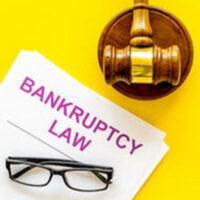Here’s Why You Won’t Lose All Your “Stuff” In Bankruptcy

The way that bankruptcy works at its most fundamental level is that you give up your things, they are sold, they pay off your creditors in full or in part, and you are debt free. Except, there’s one problem with that fundamental—which most people believe is true, but which in fact is not: You don’t always lose your things, and in fact, most people who file for bankruptcy won’t ever lose any of their property.
A Fresh Start
The law recognizes that your bankruptcy represents a fresh start for you. A way to start over, financially. A debtor cannot get a fresh start if a bankruptcy court were to take every piece of property he has, leaving the debtor homeless with no property to his name. That would tend to make people’s situations worse, not better.
What are Exemptions?
So how does bankruptcy allow you to discharge your debts and still keep your things? It does it through a system of what are known as exemptions. Exemptions are categories or dollar amounts of “safe property”; property that the bankruptcy trustee cannot ever touch, no matter what the property is or what its value may be.
Think of exemptions as a “pot,” and everything you can fit into that pot without it boiling over is yours to keep. If bankruptcy allows you a $1,000 exemption for property, you could put one item worth $1,000 in there and protect it, or 1000 items each worth $1.
The good news, and the reason why so many people keep their property when they file for bankruptcy, is because there are so many exemptions that most average people can fit everything they own into the exemptions that are provided to them under the bankruptcy code.
Using Chapter 13 Bankruptcy
There’s yet another major reason why people in bankruptcy don’t or won’t lose their things: there is always the option of Chapter 13 bankruptcy.
Let’s say that you do have property that exceeds the limits of the exemptions that you are given in a Chapter 7 bankruptcy. In Chapter 13 bankruptcy, you get to keep even the property that exceeds the exemption limits. The caveat is that you may have to pay a little bit more every month towards your monthly Chapter 13 plan, but that will be a nominal amount, if you aren’t too much over the exemption limits.
Get real answers- not myths and rumors. Call the West Palm Beach bankruptcy lawyers at Kelley Kaplan Delaney & Eller, PLLC, at 561-264-6850 for help with your bankruptcy case.
Resource:
law.cornell.edu/uscode/text/11/522



